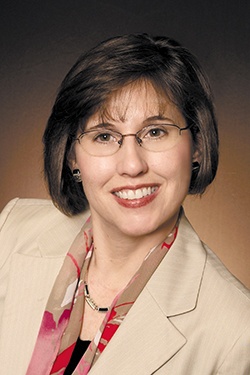Saying Im Sorry (OPINION)
by May 23, 2016 12:00 am 184 views

In 1976, Elton John had a huge hit with the ballad “Sorry Seems To Be The Hardest Word.” Six years later, the band Chicago had a No. 1 hit with “Hard To Say I’m Sorry.”
I think these musicians hit a chord because it really is hard to say “I’m sorry” to someone. But as any first-year psychology student can tell you, having the courage to own up to our mistakes is a very important part of maintaining healthy relationships.
This is not only true of personal relationships with our family and friends, but it is also crucial in a business setting.
However, admitting we did something wrong in the workplace — that we failed to meet the expectations of our co-workers or customers — can be even more difficult. But, if we stop and think about it objectively, we know that we all make mistakes sometimes. It’s inevitable, because that is the human condition.
Because so few people or companies are willing to openly and honestly admit a mistake, those who aren’t afraid to do so stand out in the marketplace and create strong customer loyalty.
When mistakes are made, does your company have a policy on how to handle them? Does everyone in your company know what that policy is?
At Arvest Bank, we have a 30-plus-year history with a formal policy of admitting when we’ve fallen short and of making amends. You can see it anytime you go into our branches because it’s typically displayed in big red and silver letters on the Arvest blue wall behind our tellers. It says “Satisfaction Guaranteed.”
Our guarantee specifically relates to the service interactions between our customers and our associates. In other words, we guarantee to our customers that our associates will treat them and their business in a friendly, efficient and respectful way that satisfies them. If we fail to do so, we will apologize, make amends and work to resolve the problem so that it isn’t repeated.
The tangible benefits of a program like this are numerous.
It clearly defines the expectations we have for associates in how they treat customers. Associates know that they are expected to be friendly, to greet customers, to thank them for their business, to be efficient and to be prompt, among other things. Having clear expectations helps associates stay focused on the ultimate goal of their job — creating and maintaining satisfied customers through positive personal interactions.
It allows us to track trends in how well we are doing in regard to customer interactions and to quickly spot any areas that need attention and improvement.
Customers who have had an unsatisfactory service experience receive a formal apology. This lets them know that, even though we fell short in a particular service interaction, we value them and their business. The result, hopefully, is that our willingness to apologize will repair any damage done to the relationship.
It is a tangible demonstration of our commitment to our mission statement, which begins with three words: “People helping people.” Too often, mission statements are carefully crafted, introduced and then quickly forgotten. Having a guarantee of our expectations in regards to how Arvest associates will treat the people who bank with Arvest keeps our mission in the forefront of our thoughts and actions every day.
If your company doesn’t have a corporate policy for what you will do and how you will act when — not if — mistakes are made, I would encourage you to consider adopting one.
Because while “I’m sorry” can sometimes seem like the hardest words to say, the impact of having the humility to apologize, making amends and correcting the problem cannot be overstated. It sets the right example for your employees, and it speaks volumes to your customers about how much you value the relationship.
Robyn Breshears is an executive vice president and sales manager for Arvest Bank’s Benton County market. You can contact her at 479-271-1295 or via email at [email protected].
